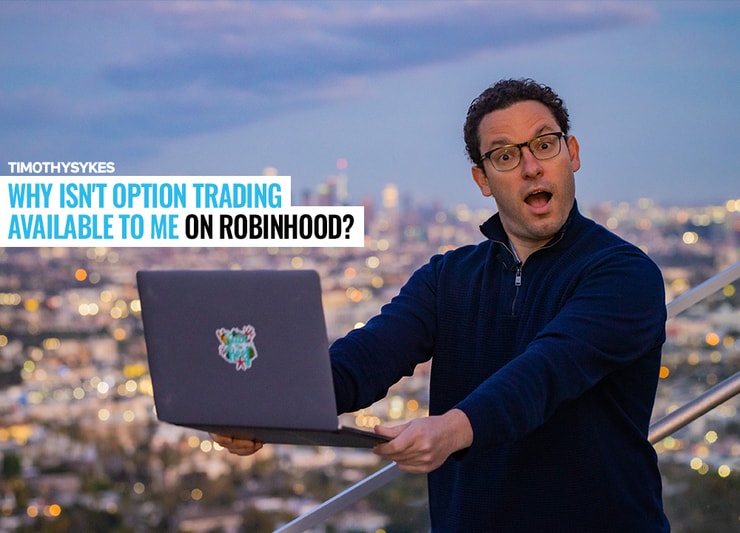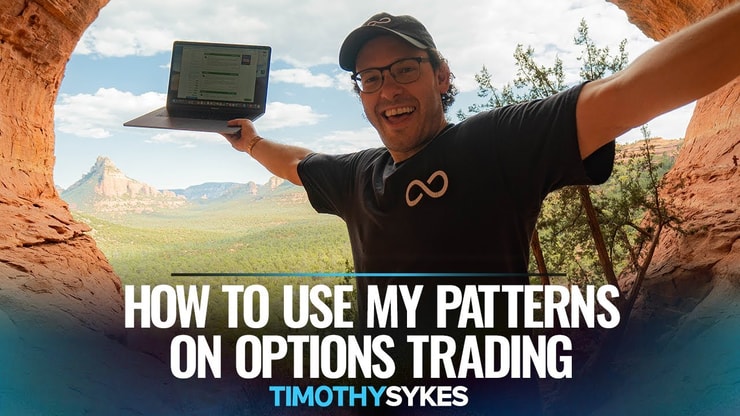Options trading might not be available to you on Robinhood for various reasons…
They all come down to the main problem — you’re not approved yet! I’ll take you through the approval process, and what you can expect on the other side.
Why can’t you access options trading on Robinhood, and how can you fix it? Read on to find out!
Table of Contents
What is Options Trading?
Options trading is a trading method where you buy options contracts. Options contracts give you the right (but not obligation) to trade assets at a specific price.
Options aren’t just for stocks. You can buy options contracts for commodities, indices, and more.
There are various platforms for options trading, like Robinhood, Webull, and TD Ameritrade. Different options trading platforms have different trading commissions and features.
Good options trading strategies resemble stock trading strategies in various ways. Since options can only be exercised at a specific price — called the “strike price” — they are more rigid than stock trades. But smart traders like my former student Mark Croock get around this limit by trading unexercised options when they hit their risk or want to take profits.
There are two parties in the options market: the holder/buyer and the writer/seller. Holders pay writers to buy options contracts. The holder’s fee to buy the options contract is called the “premium.”
What happens if the option expires unexercised? You only lose your premium.
That doesn’t mean that options are less risky than other strategies…
In fact, they can be even riskier. It isn’t as easy to cut your losses quickly. And some trading strategies can expose you to unlimited losses.
There are profits to be made in options trading, if you learn the patterns and exercise discipline. Learn more about calculating options trading profits in this article.
Why is Options Trading Not Available to Me on Robinhood?

Options trading might not be available to you on Robinhood because you’re not approved yet.
Robinhood limits options trading to more experienced traders. Why? Because online brokers want to protect traders from blowing up their accounts. New options traders often treat options like gambling, and the house always wins.
Robinhood has levels of options trading like many other popular brokers. New traders start at the lowest level and can work their way up. The logic behind these trading restrictions is that the more trading experience you have, the more risk you can take.
Robinhood’s options trading approval system consists of three levels:
- Level 1: This is the lowest level. Traders on this level can’t access the options market.
- Level 2: Level 2 traders can access basic options strategies on Robinhood.
- Level 3: Level 3 traders can access more advanced options strategies. These strategies include credit spreads, butterflies, and more. Advanced options strategies may also require a margin trading account.
You enable options trading on Robinhood by submitting an application. Approval means you’re authorized to trade options. Your account will also be upgraded to an instant account. This means you can make instant deposits directly from your bank.
Other brokers have different leveling systems. But the general flow is the same.
You might not have access to options trading with a new account. If you want to trade options, you need to go through a review process. Some of them will also have minimum deposit requirements.
More Breaking News
- Exponent’s Financial Strength Propels Stock as Dividend Increases
- Oracle’s Expansion Plans and Market Response Fuel Stock Momentum
- Robinhood Appointed Trustee for Trump Accounts, Stock Rises
- Price Predictions Fueled by Company Moves In Market Dynamics
Robinhood’s commission-free trading makes it a popular options trading platform. But there are other platforms for options trading. Read my reviews about options trading on Webull and TD Ameritrade to learn more.
How To Enable Options Trading on Robinhood App

Here’s a quick step-by-step guide to enabling options trading on the Robinhood mobile platform. You need to be a Level 2 trader before following this guide. If you’re not at Level 2, get some more trading experience, then come back to this guide.
The steps are as follows:
- Go to Settings and choose the Investing sub-menu.
- Scroll to Options.
- Choose Enable Options Trading.
- Answer the verification questions. These questions gauge your options knowledge, trading experience, and financial capacity.
- Wait while your options trading application is reviewed. The review process usually takes around 24 hours.
If you pass the approval process, you’ll be ready to trade options!
Many new traders blow up their accounts because they don’t think about risk. Learn why options trading is risky so you won’t get in over your head. You should also learn more about stop-loss in options trading to manage risk.
Bottom Line
Robinhood is a popular trading app thanks to its fee-free trading. But not all traders can access options traders on Robinhood right away.
You most likely can’t trade options on Robinhood because you’re not approved. But that shouldn’t be a problem. Put in the work to upgrade your trading level and submit a new application. Upgrading your level usually needs a combination of trading knowledge and experience.
Robinhood imposes trading restrictions to protect newbie traders. Why? Because newbie traders are more likely to blow up their accounts with bad trades. As long as you prove you can handle it, you can trade options on Robinhood.
Options trading is a marathon, not a sprint. Active traders have to be in it for the long haul. This means improving your trading skills every day.
Curious about options trading but don’t want to commit money yet? Try online simulators before trading options for real. Paper trading won’t teach you emotional control, but it can help you get your feet wet.
Another great way to skill up is by enrolling in an options trading course. In the options world, I think there’s no better mentor than my former student Mark Croock.
Mark has racked up $4 million in career earnings, mostly from trading options. He’s done this by adapting my penny stock trading strategies to options. Before he was a teacher, he was one of my best students — watching every single webinar in the Trading Challenge 2 or 3 times!
Now he’s got his own mentorship program, called the Evolved Trader. Check it out for strategy sessions, trade alerts, a great chat room, and more!
Have any options trading tips I left out? Let me know in the comments — I love hearing from my readers!



Leave a reply